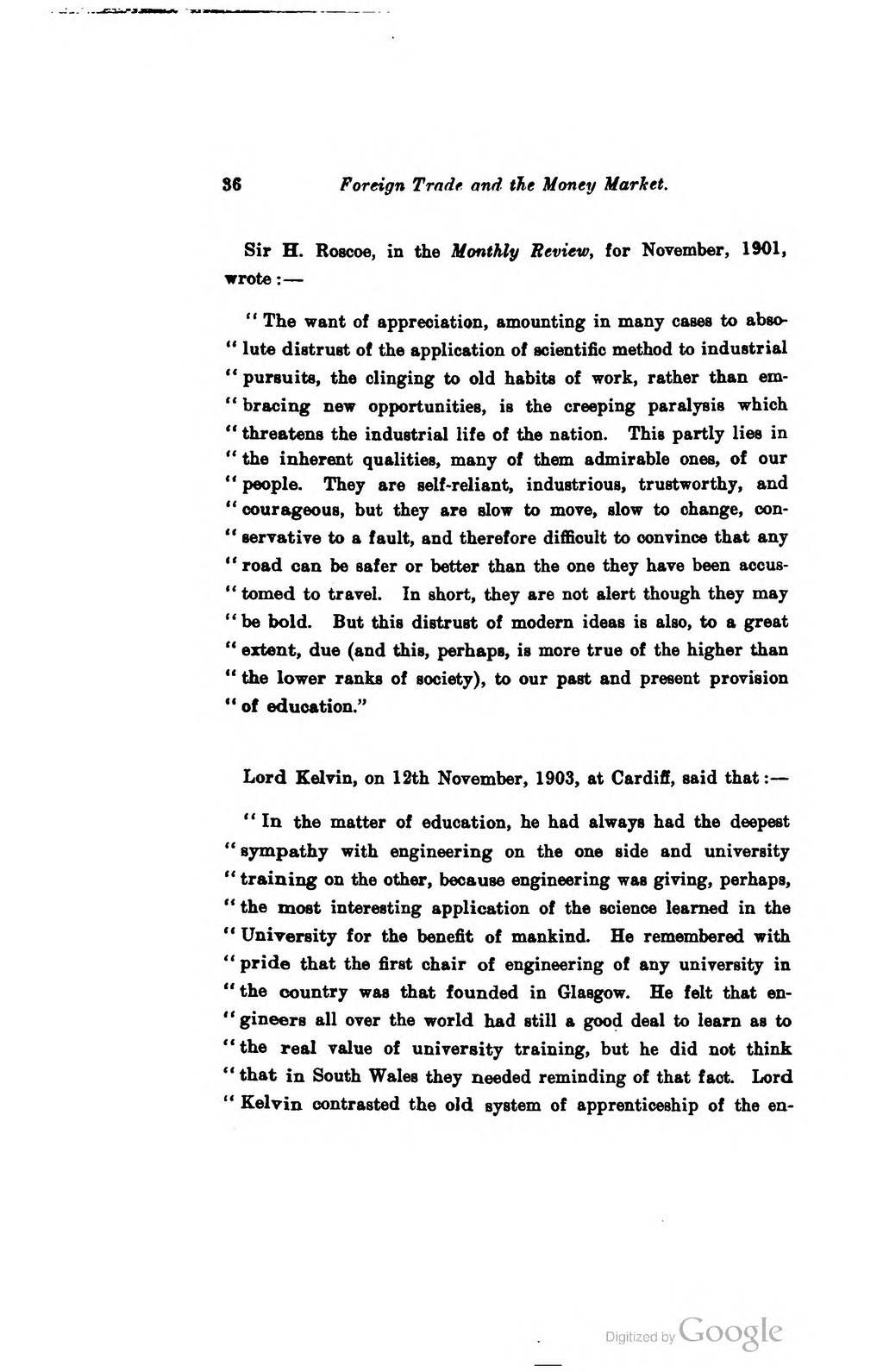Sir H. Roscoe, in the Monthly Review, for November, 1901, wrote:—
"The want of appreciation, amounting in many cases to absolute distrust of the application of scientific method to industrial pursuits, the clinging to old habits of work, rather than embracing new opportunities, is the creeping paralysis which threatens the industrial life of the nation. This partly lies in the inherent qualities, many of them admirable ones, of our people. They are self~reliant, industrious, trustworthy, and courageous, but they are slow to move, slow to change, conservative to a fault, and therefore difficult to convince that any road can be safer or better than the one they have been accustomed to travel. In short, they are not alert though they may be bold. But this distrust of modern ideas is also, to a great extent, due (and this, perhaps, is more true of the higher than the lower ranks of society), to our past and present provision of education."
Lord Kelvin, on 12th November, 1903, at Cardiff, said that:—
"In the matter of education, he had always had the deepest sympathy with engineering on the one side and university training on the other, because engineering was giving, perhaps, the most interesting application of the science learned in the University for the benefit of mankind. He remembered with pride that the first chair of engineering of any university in the country was that founded in Glasgow. He felt that engineers all over the world had still a good deal to learn as to the real value of university training, but he did not think that in South Wales they needed reminding of that fact. Lord Kelvin contrasted the old system of apprenticeship of the en-
